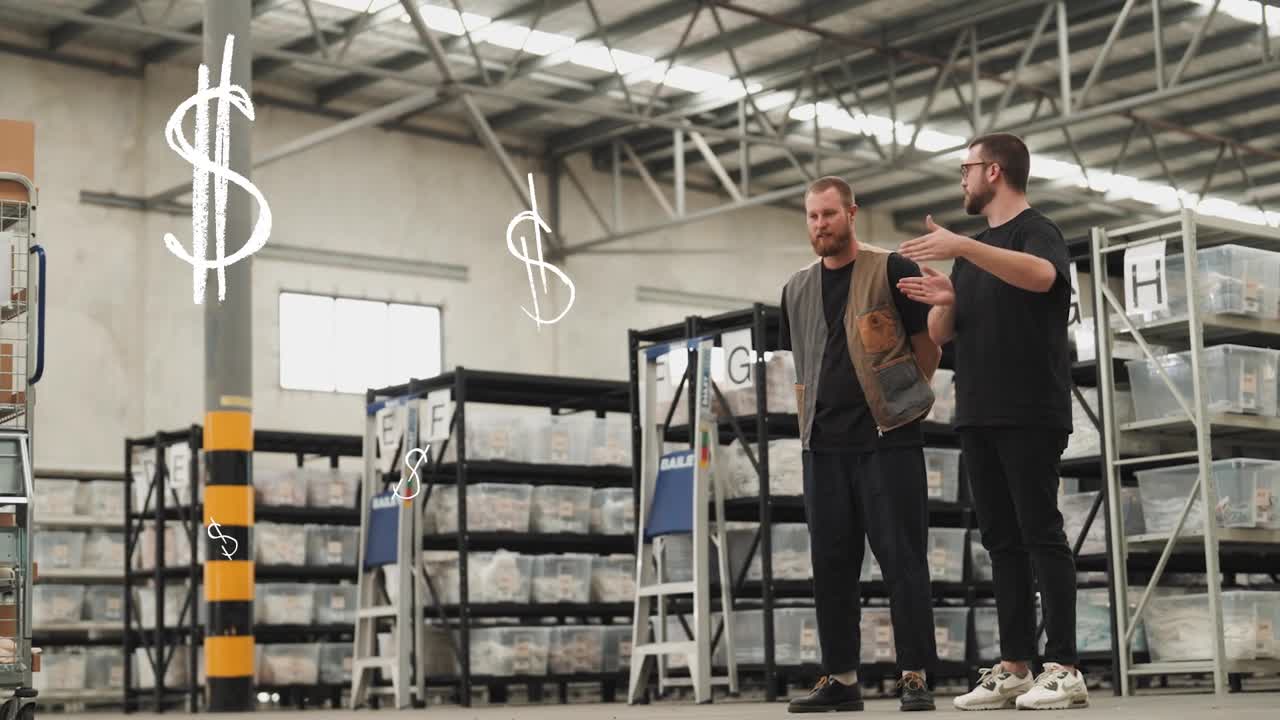Advancements in technology are transforming reverse logistics and returns management in ecommerce.
By embracing the latest innovations in software, automation, and artificial intelligence, you can position your ecommerce business on the cutting edge of reverse logistics and gain a competitive advantage in the coming years.
The History of Reverse Logistics
In the past, reverse logistics involved manual processes that heavily depended on human intervention for sorting, processing, and managing returned items. This resulted in longer processing times, more errors, and higher costs for businesses.
With the advancement of technology, reverse logistics has undergone a significant transformation, with automation transforming how ecommerce businesses manage returns.
The Future of Reverse Logistics
The future of reverse logistics in ecommerce looks incredibly promising thanks to rapid advances in returns-focused technology.
As artificial intelligence, automated systems, and end-to-end software become more sophisticated and integrated, managing returns is becoming faster, more efficient, and more profitable than ever.
By taking advantage of these innovations, your ecommerce business will be able to handle a high volume of returns seamlessly, reduce overhead costs, and maximize the value of returns.
74% of businesses are increasing their investment in supply chain technology and innovations, including AI technologies, automation, and analytics.
Position yourself on the cutting edge of reverse logistics and gain a competitive advantage in the coming years as the field continues evolving by keeping up with the latest technologies.
Technologies That Are Shaping the Future of Reverse Logistics
As technology continues advancing and becoming more integrated, reverse logistics will become faster, cheaper, and more streamlined than ever.
Some of the key technologies driving the future of reverse logistics include:
Warehouse Management Systems
A warehouse management system (WMS) is software that helps manage inventory tracking, order fulfillment, shipping, and receiving.
For reverse logistics specifically, a WMS can optimize the returns process through:
- Intelligent routing of returned items
- Real-time visibility into return status
- Tools to identify and handle fraudulent returns
- Sorting and restocking of returned items
Leading WMS platforms like Descartes Peoplevox provide robust functionality for managing warehouse operations and inventory control. Descartes Peoplevox offers features like barcode scanning, wave planning, and integrations with top ecommerce platforms and returns management systems, enabling you to efficiently sync order information with returns data.
By centralizing inventory control, synchronizing workflows, and providing real-time visibility, a robust WMS enables you to streamline the reverse logistics process, reducing costs, speeding up processing times, and recapturing value from returned products.
Warehouse management systems are becoming standard among ecommerce companies, with an increasing number of businesses adopting this technology to maintain a competitive edge in their logistics, particularly in reverse logistics.

Automated Sortation
Sorting returns back into inventory can be a time and labor-intensive process. Automated sortation systems powered by machine learning algorithms can streamline this process significantly.
Conveyor belts, scanners, and robotic arms can scan item barcodes and automatically route them to the right area of your warehouse.
It is estimated that by 2025, around 4 million commercial warehouse robots will have been installed in over 50,000 warehouses.
Automating this process enables you to:
- Cut down on manual sorting time
- Quickly get products back on shelves
- Increase processing volumes and scalability
By automating sortation, you can handle a high volume of returns quickly and efficiently, eliminating many repetitive manual tasks and reducing costs.
Automated sortation systems are becoming increasingly popular among retailers looking to optimize their reverse logistics and improve warehouse efficiency, highlighting the growing importance of automation in reverse logistics.
AI-Powered Decision Making
Artificial intelligence enables you to make smart decisions, helping you recapture more value from returned products.
AI can analyze key attributes like:
- Item condition
- Time since purchase
- Demand and resale value
- Cost of repackaging
Based on this data, machine learning models can instantly determine the optimal handling for each return, whether that’s resale, refurbishment, liquidation, or donation.
Combine AI with industry expertise to maximize recovery, reduce waste, and increase profitability.
As AI becomes an integral part of various systems and tools, embracing this technology has become a necessity for staying competitive. According to a 2023 survey, over 75% of companies plan to increase the use of AI in their supply chains.
Join the wave of businesses integrating AI into their operations in order to stay ahead of the evolving reverse logistics landscape.

Returns Management Systems
Returns management systems (RMS) are becoming essential for retailers looking to optimize their reverse logistics. These end-to-end platforms sync all returns-related data and workflows into a single centralized system.
RMS solutions like ReturnGO provide powerful self-service return portals that make the process more convenient for customers while streamlining your workflow.
Returns management systems provide things like:
- Automatically-generated return shipping labels
- Return analytics and data-driven insights
- Automated return policy enforcement
- Real-time tracking of return shipments
RMS platforms also offer integration with the WMS and other systems to enable real-time tracking and status updates. Having a unified view of return data ensures that all teams stay up-to-date, reducing errors and streamlining workflows.
Additionally, leading RMS solutions like ReturnGO provide advanced analytics on return patterns, problematic products, and other insights you can use to fine-tune your products and processes.
Automating returns management has become the gold standard among ecommerce businesses. RMS solutions bring simplicity to a complex process through systemic coordination of tasks, data, and teams.

The Future is Bright for Reverse Logistics
While reverse logistics has long been an issue for ecommerce businesses, emerging technologies are completely transforming the process.
Leveraging solutions that can optimize your reverse supply chain will be key to remaining competitive in the coming years.
As artificial intelligence, automated systems, and end-to-end software become more sophisticated and integrated, managing returns will become faster, more efficient, and more profitable than ever.
Get ahead of the competition by leveraging reverse logistics technology to maximize profits, reduce overhead costs, and take your customer experience to the next level.
About the Author
Rebecca Fox
Product Marketing Manager, ReturnGO
Rebecca Fox is the Product Marketing Manager at ReturnGO. She is passionate about educating ecommerce business owners on how they can streamline their post-purchase process. Using her experience and industry expertise, Rebecca is committed to helping businesses thrive in the ever-changing world of ecommerce.






